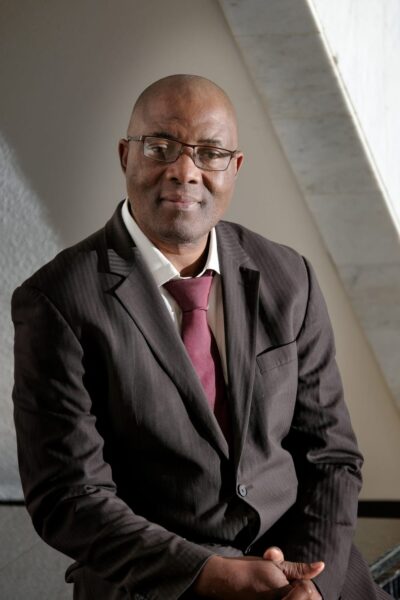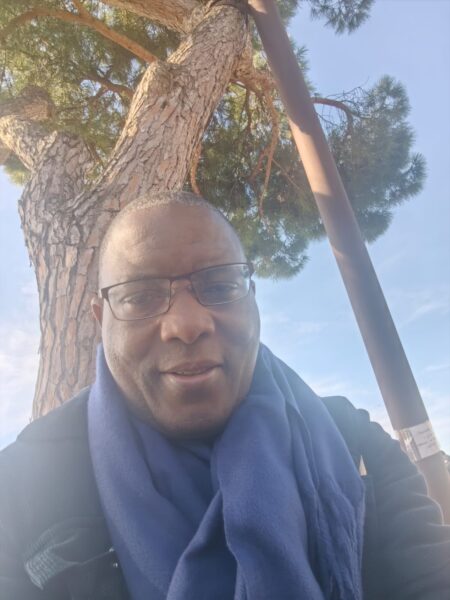Serges Kamga
This media piece is instigated by the good news that Professor Toyin Falola will be receiving two honorary degrees back-to-back in South African Universities in April and May—one at The University of the Free State and the other at North-West University.
Every generation season, nature graciously programmed its events so perfectly that they deposited people with great qualities in adequate proportions into the world. But history has been so persistent in teaching us that the people in whom valuable ideas and uncommon courage are deposited do not always get the appropriate attention and honor for the simple fact that the people around whom they lived and performed extraordinary feats sometimes failed to understand how significant their superhuman engagements were adequately. In South Africa, for example, people in the generation of Nelson Mandela did not appreciate the gravity of the man’s demeanor, grace, and excellence because, I believe, they thought that the action of protest that took away his freedom for approximately three decades was an everyday feat. There was no place in human history and no time in human civilization that the experience of incarceration of an activist over a just course was considered normal, much less the courage that they summoned to undergo the series of dehumanizing treatments to which they were subjected. Malcolm X and Martin Luther King Jnr in the United States of America, Mahatma Gandhi in India, and Awolowo in Nigeria, among others, were individuals who performed awe-inspiring and unprecedented excellent feats that transformed the lives of the people around them, and the ones in various generations to succeed them. Today, Toyin Falola has proven to everyone that he belongs to the category of individuals making gracious efforts to improve human life.

For one, Toyin Falola is an incurable writer whose obsession with transferring knowledge is not rivaled by anyone in this generation, and this conclusion is data-driven. It would be difficult, if not wholly impossible, to come across anyone who has produced as many books as this man at the current time, and that itself underscores the argument that he takes writing as an obsession. Of course, anyone may protest and point to the fact that sometimes the indicator of productivity in an intellectual society is not the magnitude of what an author produces but the quality and substance of what they have created. They would not be wrong to say such things, but this is where it gets very interesting. One cannot lay a hand on his intellectual productions and pass negative comments about them or accuse them of not being in-depth in their intellectual reach. With each publication, lecture, workshop, and conference anchored by Falola, you would come across chains of refined ideas that could be used to improve the conditions of the world in extraordinary ways. In my book, Power, Politics, and African Agency in the Works of Toyin Falola, I capture Falola’s works that discuss the undergarments of sociopolitical and socio-philosophical affairs of the African world, primarily to project aspects of human epistemic traditions that the dominant have brutally marginalized. By that condition, TF, as he popularly likes to be addressed, has established himself not just as a carrier or conveyor of ideas that could be used or discarded by the powerful ones but as a driver of how they can be implemented and enforced. And this is what has separated him from his contemporaries.
I mentioned earlier that he was obsessed with sharing knowledge because I struggle to understand how an individual of 72 years of age would have successfully authored over a hundred and fifty publications, the majority of which are voluminous books and papers. If subjected to arithmetic analysis, it would reveal that the man produces at least two of them each year from the time of his birth. But then, there is something more enthusing in that conclusion! No one ever begins the trade of writing books from the time they were born. You cannot start to write coherently or to the extent that your work draws enormous attention unless you have spent at least two decades on the land of the living, not least when you are a historian, because the items of history you want to write about demands your time and ability to examine the evidence before you can produce quality content critically. If you have to extract items of history from a target population, you must have acquired substantial knowledge and technical know-how so that you can get information where necessary, and you can become an imposing individual who would write credibly. Given that TF has demonstrated this eloquently and even efficiently, he is an incurable writer in this generation. His growing age does not deter him; his other career demands are not an impediment. Now and then, TF always comes with avant-garde writings that show his unwavering dedication to what he finds entertaining―writing. I cannot find another word to describe this reality than obsession. Falola writes, teaches, mentors, advocates, mediates, promotes, and does many other things, all of which do not divorce him from scribbling ideas down for the benefit of humanity.

I started by establishing a node for my conversation by stating that each generation is filled with extraordinary individuals who perform extraordinarily for the benefit of humanity. This is underscored by the awareness that to be consistent, just like TF, requires a great deal of sacrifice, including your precious time and sometimes the attention that the people around you naturally deserve, and the one you also deserve to enjoy from them. I generally have no other language to describe this other than to conclude that such feats are only possible for legend because such individuals are more gracious than others. It is not coincidental that Falola is celebrated in South Africa and across the continent. For one, people have understood that his efforts towards repositioning the country to its deserved heights in global politics indicate that he is a committed writer, dedicated to the course of emancipation that would bring otherwise groups of people to their proper status. In addition, this man’s network of influence spreads across different places, and it cannot be overemphasized how African intellectuals have generally benefited from this individual. In numerous conferences in Africa and beyond, scholars highligh how TF has personally contributed to their monumental growth in academia and other sectors.
It dawned on me that individuals like him are legends. They are extraordinary figures deposited in our midst. Still, because of the privilege of existing in the same period, we often downplay how superhuman they are in their disposition to things. Anyone familiar with TF would attest to how this man has risked his health on the account that he wants to use his prodigious mind to improve the conditions of the world and leave it better than he met it. If there are educational engagements that would usher great minds into the intellectual landscape of Ethiopia today, Falola will strive to make invaluable contributions to its success, in most cases with his physical presence. TF will not run from the battle tomorrow when he is invited to offer insights about post-truth policies geared towards situating our steps on the right pedestal. TF will attend to them without prejudice. This does not impair his academic business in Texas, where his sphere of influence has been extensive. On many occasions, I have experienced how tolerant he is to people around him, not only his acquaintances. Combining such rigorous academic engagements with writing should be ordinarily considered heroic. More enticing is the understanding that he has always supplemented all these actions with humanitarian activities that directly impact the people. For instance, TF Falola commits to the youths annually awarded monetary and immeasurable prizes to encourage them where necessary and use that to promote their ambitions.

I belong to individuals who believe all these actions deserve honor, celebration, and recognition. On that basis, I commend South Africa for making these efforts to celebrate this outstanding individual. Without knowing, he has inspired different generations of Africans to believe in the dream of the continent and themselves. Finding people with remarkable values worth modeling one’s life after is challenging. Today, it is indisputable that TF has taken that role and has been doing so elegantly in his demeanor.
